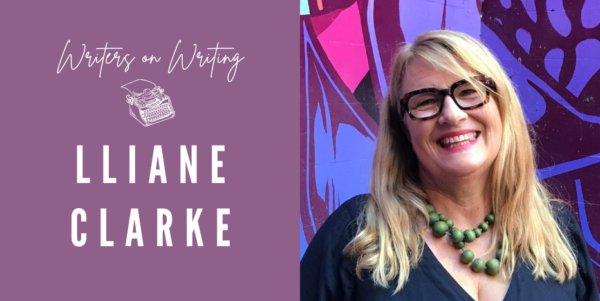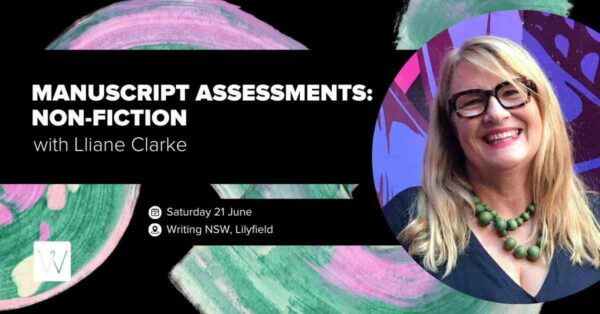
Writers on Writing is our regular conversation with a writer or industry professional about the writing craft, industry insights, and their own practice. This week, we spoke to Lliane Clarke about how to receive feedback on our writing to make our manuscripts stand out from the rest.
As an editor of non-fiction writing, what pieces of advice do you find yourself repeating often?
Be prepared to ask yourself some hard questions. Who are you writing this for? Research similar books in your market – has this story been told before? What is unique about your angle? We read non-fiction for information and also for emotional engagement. Does your topic have the potential to reach a wider audience because it has ‘big human issues’ to share? By this I mean issues about resilience, survival, love.
What do the manuscripts that stand out from the rest have in common?
I love a well structured draft manuscript – it may have some issues still in development, and anything can happen (sometimes manuscripts need to be turned upside down and then they work!) but it has to have a clear direction. What is the road map that the author is taking the reader on a journey with? What does the contents page look like? It means the author has thought about the reader and the ‘ask’ they are making to get them to pick up or buy their book.
In your experience as a publicist, what can a writer be doing to build their author profile?
Many new authors think that they have to set up a website. For starting authors, I would say rather than spending money making a website, focus on your Linked In profile and your Facebook profile as an author. Start a new profile page that is called ‘your name and author’. This takes time, commitment and energy. Building an author profile means an active presence that has regular posts – posts that show that you are interested and passionate about the sector that you are writing in. Don’t be afraid to reach out to the associate organisations in your topic area and share and enter discussions with them online to build your audience.
What kind of questions should a writer ask a manuscript assessor, or anyone reading their work, to receive the most useful feedback?
I think the most useful question will always be – at what point were you engaged enough to keep reading this work? At what point did you lose interest and why? From this question will arise issues of voice, structure, length, research integrity, copyright, and all the other technical feedback areas of writing a non-fiction work.
What kind of ethical commitments does a writer have to truth when writing non-fiction? Is it justified to deviate from fact for the sake of storytelling?
A non-fiction writer must always remember that their work will one day go out into the wide world of the public. They need to be able to show where they have got their information from – Who said that? Who wrote that? If they make something up – or make up a statement about their topic – it will be exposed if they don’t reference it. This doesn’t mean an exhaustive academic bibliography, but it is essential to show that they have researched that area. They need to be able to answer that question on a podcast or a radio programme in public.
Lliane Clarke is an experienced publisher, writer, ghost-writer, editor and journalist with over 20 years of experience in publishing in print and online. She has a passion for story-telling and helping writers to bring to life the stories they want to tell.
Lliane has managed major authors across a variety of genres from biography, cookery and crime and has commissioned titles for markets in Australia and the UK. She has written and created trade and custom publishing titles for companies such as New Hobsons Press, New Holland Publishers International, Bauer Media Books, Emap Media Magazines and others. She runs non-fiction manuscript assessment sessions for Writing NSW and presents non-fiction titles on behalf of authors to publishers such as Hardie Grant, Allen and Unwin/Murdoch, Random House Penguin and New Holland Publishers amongst others. Lliane is an experienced senior communications professional with extensive experience in developing publicity campaigns. She is also Artistic Director of Voices of Women, a literary and performance program that focusses on monologue as an art form.
Join Lliane Clarke for Manuscript Assessment: Non-Fiction, Saturday 21 June at Writing NSW.
If you want to be the first to read great advice, prompts and inspiration from our incredible tutors, subscribe to our weekly e-newsletter Newsbite.
More from Writing NSW
Check out our full range of writing courses in Sydney, our online writing courses and our feedback programs to see how we can help you on your creative writing journey. Find out about our competitions and opportunities, as well as writing groups across NSW, and sign up to our weekly newsletter for writing events, opportunities and giveaways.

